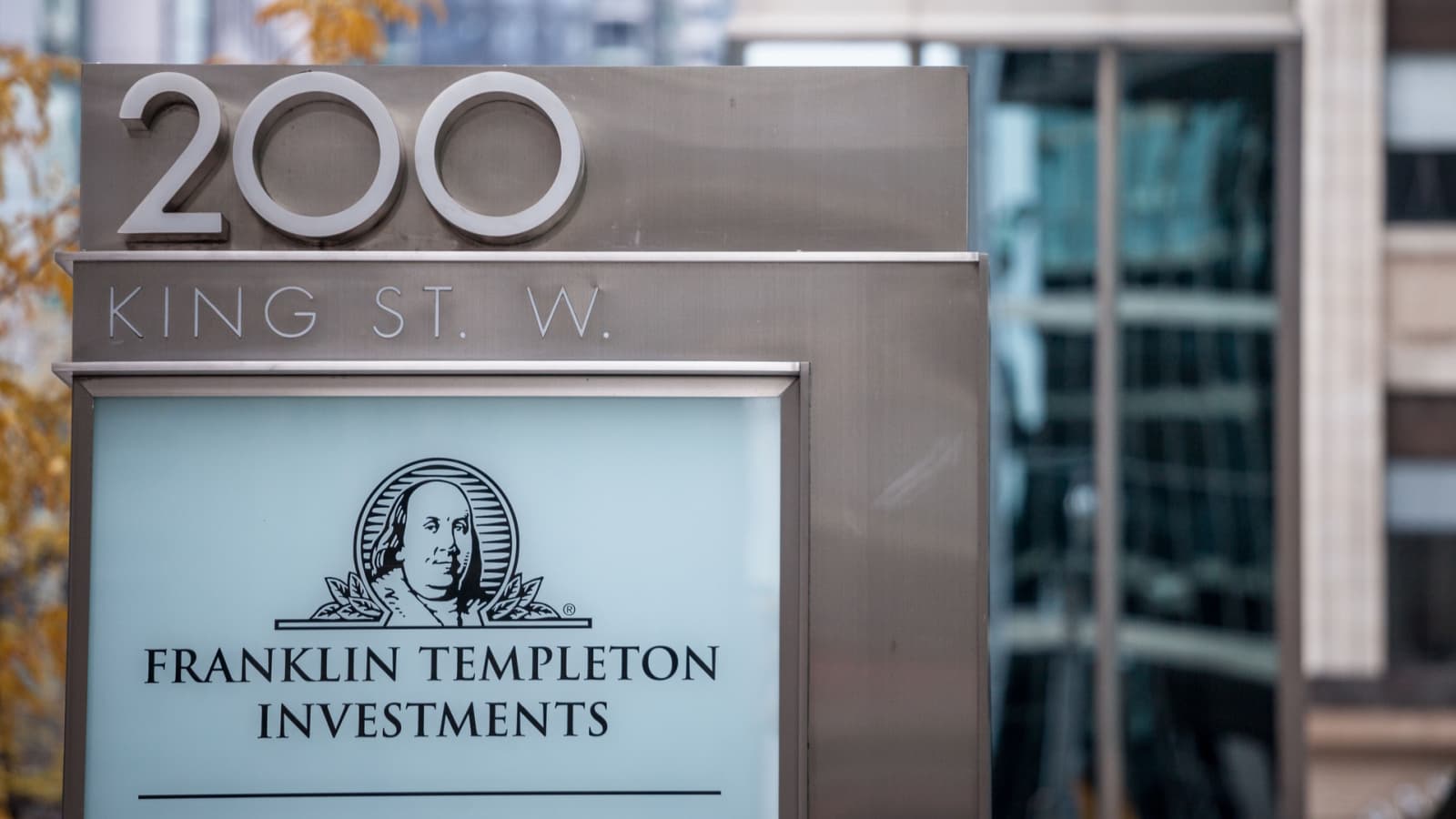Franklin Templeton Preps First Institutional Crypto Accounts
$1.4T asset manager’s separately managed accounts to be available to financial advisers and wealth managers via Eaglebrook Advisors’ platform

Source: Shutterstock
- The firm is offering a market cap-weighted strategy that invests in 10 to 15 of the largest digital assets, as well as a similar one that caps allocations to BTC and ETH
- Franklin Templeton made a strategic investment in SMA platform Eaglebrook Advisors in April
Franklin Templeton is set to offer cryptocurrency-focused separately managed accounts (SMAs) to investment professionals for the first time.
The move is the latest example of a traditional finance giant diving into digital assets — despite the ongoing bear market. Separately managed accounts are sometimes favored by institutional investors over commingled funds, because they come with customized strategy and risk profiles, as well as instant liquidity.
The launches follow Franklin Templeton’s strategic investment in SMA platform Eaglebrook Advisors in April. The $1.4 trillion asset manager’s first crypto strategies will be available to financial advisers and wealth managers working with US investors via Eaglebrook’s turnkey platform by mid-October.
Roger Bayston, Franklin’s head of digital assets, told Blockworks the firm’s registered investment adviser (RIA) partners have a growing interest in alternative investments, including crypto. But regulatory ambiguity in the US means cryptoassets are not yet securities, he added.
“Customized SMAs are a perfect delivery mechanism for these assets constructed by sound advice,” Bayston said in an email. “SMAs are a significant business in traditional finance, and we are bringing these digital assets into a high-quality product offering delivered via RIAs. This is a further extension of what we do.”
Eaglebrook Advisors CEO Christopher King said Franklin Templeton’s new offerings represent “an inflection point” for crypto, as the US wealth management market is demanding professionally managed digital asset SMA strategies from trusted asset managers.
He called the segment the “lowest-hanging fruit” for the crypto market in an interview with Blockworks last year, adding at the time that about 95% of the adviser market had not yet invested in cryptoassets.
“We are working together on sales and distribution of these strategies and helping wealth managers and the clients they serve understand the digital asset market,” King told Blockworks.
Franklin Templeton’s Digital Assets Core SMA is a market cap-weighted strategy that invests in 10 to 15 of the largest digital assets, excluding stablecoins and meme coins.
Its Digital Assets Core Capped SMA takes a similar approach, but caps its allocations to bitcoin (BTC) and ether (ETH) at 25% of the portfolio each.
Though competing asset managers, such as BlackRock and Fidelity, launched ETFs focused on blockchain technologies in April, Bayston said then that Franklin Templeton was still mulling the right time for an entrance.
Fidelity in April moved to allow certain US workers to allocate a portion of their retirement savings to bitcoin through the company’s 401(k) plan investment lineup. BlackRock, the world’s largest asset manager with roughly $8.5 trillion, partnered with Coinbase last month and days later launched a bitcoin private trust.
“I’m sure more and more TradFi firms are preparing to enter this innovation-driven asset class,” said CK Zheng, an ex-Credit Suisse executive who co-founded crypto hedge fund ZX Squared Capital last year. “Even though we can’t forecast when the crypto winter will end, we know much demand from both institutional investors and high-net-worth individuals will come when the next crypto bull market starts.”
Franklin Templeton’s product rollout came the same day as Mysten Labs’ $300 million fundraise. The asset manager participated in the Series B round — valuing the Web3 infrastructure company at roughly $2 billion — alongside FTX Ventures, a16z and others.
Get the news in your inbox. Explore Blockworks newsletters:
- The Breakdown: Decoding crypto and the markets. Daily.
- 0xResearch: Alpha in your inbox. Think like an analyst.






